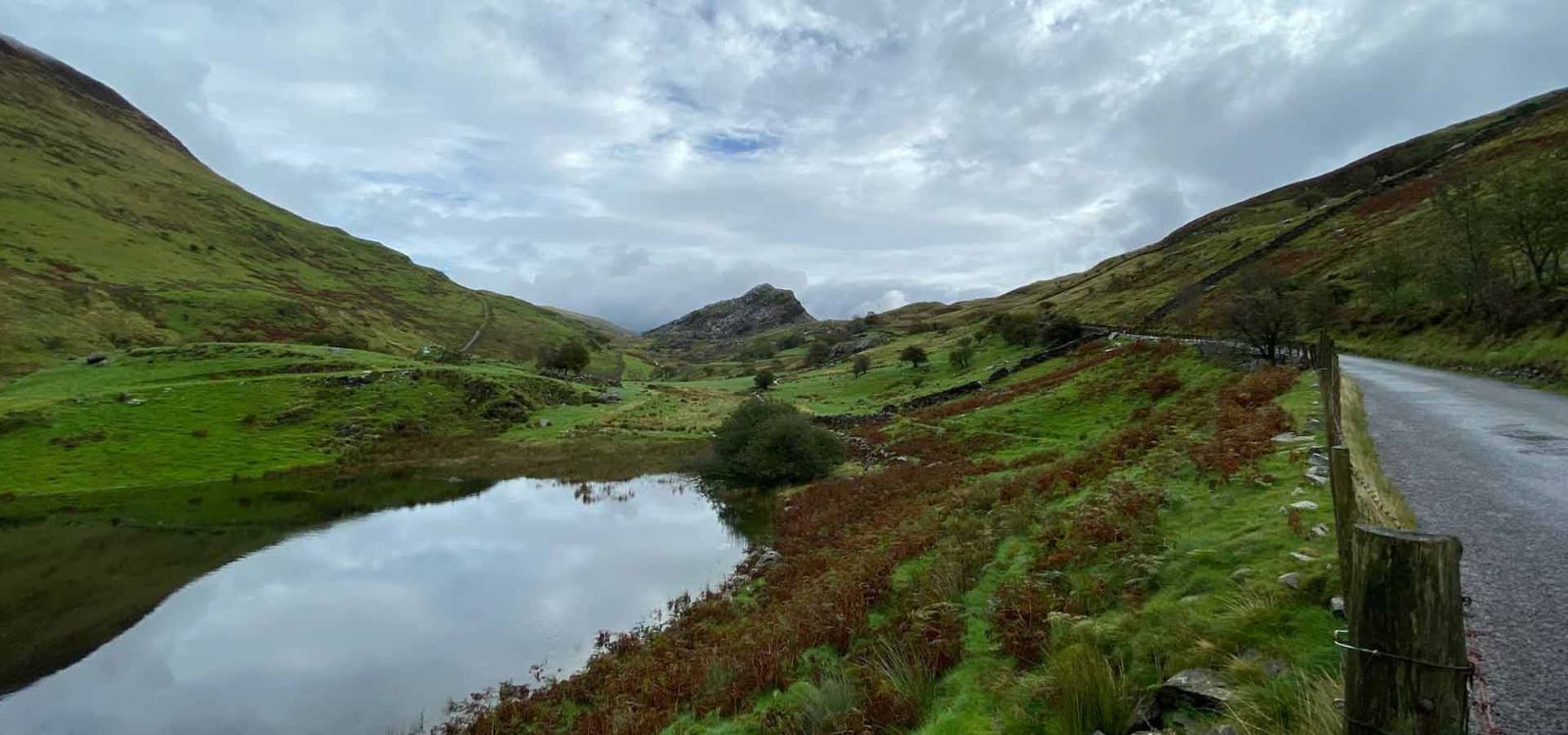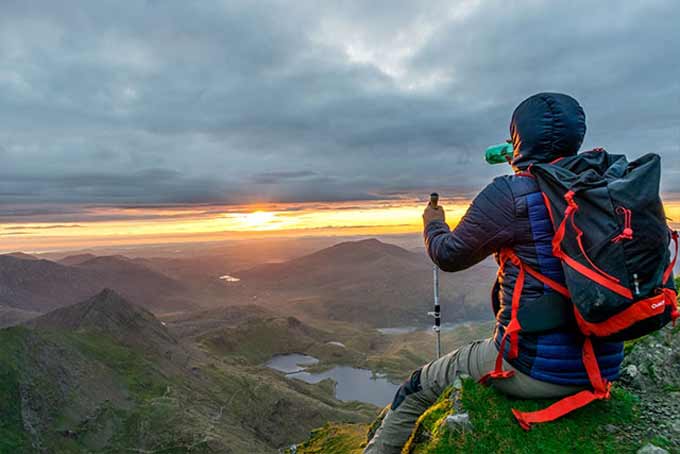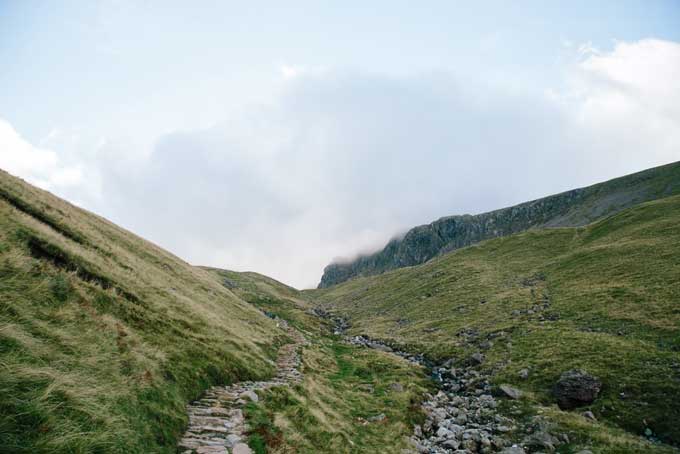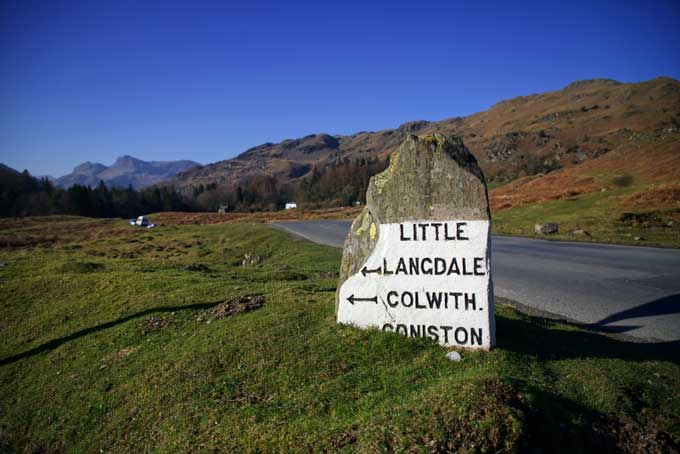
Words are important. Naming something gives it significance; describing something inspires an emotive response. The language of adventure is no exception, especially when it comes to appreciating and caring for the natural world.
“I beat Snowdon in three hours.”
“We plan on conquering Kilimanjaro next year.”
“So when are you tackling the Three Peaks?”
These sorts of phrases are very common in the adventuring community, but they come with significant caveats. They all involve the person doing something to the landscape, and not in a way that sounds very friendly: to beat, to conquer, to tackle. These are pretty negative verbs for whoever’s on the receiving end - in this case, the natural world. It implies that mountains are adversaries to be dominated, that nature should be beaten into submission.
Language like this also brings with it a sense of detachment. It’s the sort of language used by soldiers to glorify their victories, and at the same time perceive their enemies as a sort of unrelatable and inevitably malevolent entity. The same goes when applied to nature: it holds it at arm’s length, as something undeserving of understanding or empathy. It certainly does nothing to instil that sense of wonder that many adventurers feel when actually out there.

Man Over Nature
It’s likely this style of language has its roots with explorers of days gone by, for whom adventure meant unknown dangers from disease, wild animals, hostile environments, and (often very understandably) unwelcoming natives. The price of ‘progress’, of settling a new land, was that nature had to be beaten into submission. Forests were cleared, swamps were drained, and grasslands were paved over. Civilisation triumphed over the natural world - or that’s how colonialists saw it, at least.
Attitudes to the natural world have changed since then for many of us. Now, nature is something to be valued and treasured - and with good reason, given its many benefits to human health. Yet, the language of experiencing nature through adventure has not caught up.

Lost Words
Of course, bygone explorers were not the only ones experiencing the natural world. Those whose livelihoods depended upon a close relationship with nature - in other words, the majority of humans for the majority of human history - invariably had rich vocabularies describing their environment. These vocabularies persist in many parts of the world, especially within indigenous populations.
Now, as acclaimed nature writer Robert Macfarlane understands all too well, these vocabularies are at risk of extinction in the face of urbanisation. “Language-deficit leads to attention-deficit,” he writes in his book Landmarks. “As we further deplete our ability to name, describe and figure particular aspects of our places, our competence for understanding and imagining possible relationships with nonhuman nature is correspondingly depleted.” Words bestow understanding, and understanding bestows appreciation. Without this appreciation, the ground is ripe for exploitation.
Dominick Tyler, author of Uncommon Ground, explains what this can mean for those seeking adventure. “The outside, the countryside, has become the unfamiliar ‘other’, a threat to be overcome and dominated, not understood and enjoyed,’ he says in an interview with New Internationalist. These words might ring uncomfortably true with active city dwellers, whose experiences of nature are crammed into the odd weekend away from the city, with no chance of gaining a deeper understanding. Of course, it's better to get out into these places than not at all, but it is interesting to assess to language we use when going on such adventures. It’s a lot easier to ‘beat’ Snowdon in a weekend than it is to understand its landscape, to learn its language. But that doesn’t mean it shouldn’t be attempted.

Going Around the Mountain
“To aim for the highest point is not the only way to climb a mountain,” says Nan Shepherd, in her seminal memoir The Living Mountain. She spent her life living in the Scottish Cairngorms, where she moved away from the traditionally masculine idea of the summit as the goal, to rather walking around and ‘into’ the landscape. She proposed a transition from domination to symbiosis, for a deeper and more meaningful appreciation of the natural world. “Often the mountain gives itself most completely when I have no destination, when I reach nowhere in particular, but have gone out merely to be with the mountain as one visits a friend with no intention but to be with him,” she writes.
We lack a common vocabulary to approach the natural world in this way. “I plan to wander mindfully round some foothills and valleys in the north-eastern part of Snowdonia” takes a lot more unpicking than “I plan to do Snowdon”. Yet, as we all intuitively know, language is always changing and adapting, accommodating the changing face of society and, in turn, changing society itself. And we are not starting from scratch: those who have maintained a strong relationship with the natural world have rich lexicons just waiting for modern society to remember them.
And with changes to language, we might change the fate of the natural environment for the better. A transition away from a language of dominance might help us accept that we are a part of nature, not separate or superior. This will help us value nature more: not looking to exploit it for personal gain, but rather treasuring it for what it signifies. And if we look after the natural world, it will in turn look after us.